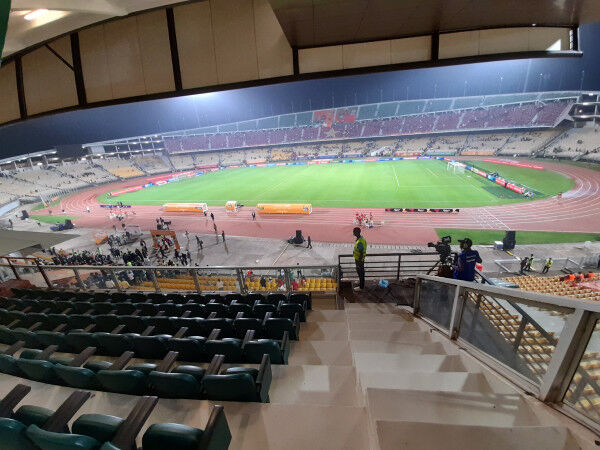Sports can be used to reshape the African brand by growing national economies, experts have said.
At a monthly roundtable discussion by the Centre for Multidisciplinary Research and Innovation (CEMRI), a non-governmental organisation (NGO), which focused on repositioning the African brand through sports, the experts called on governments, at all levels, to find ways to leverage different aspects of the sector to enhance national development.
The roundtable discussion was hosted by a Senior Lecturer at the University of Greenwich, Dr. Emmanuel Mogaji, with panelists, including founder and CEO of Sports Connect Africa, Cynthia Mumbo; African Schools Programme Manager, Confederation Africaine de Football (CAF), Mukabana Yvonne Namai; the Chief Executive Officer at Alive and Kicking, a social enterprise in Kenya, Sheba Nyaronga; the founder of AthleticsAfrica Foundation, Yomi Omogbeja; a lecturer and programme leader, B.Sc. Sport Management, Bournemouth University, UK, Dr. Manuela Picariello and founder and project leader, The Football Foundation for Africa, Brian Wesaala.
Mumbo, who raised concern about the African brand, asked: “What is the promise that Africa is given to? Who are the different stakeholders interested in the brand that is Africa? When we talk about brand Africa, who exactly is who, who cares about Brand Africa?.”
Namai, speaking in a personal capacity and views not that of CAF, noted that the language of sports is still relevant in Africa and professionalising African sports can positively influence the African brand.
She said that ‘The African’ story is not complete without the strides its sports are making.
On the matter of the African brand, Nyaronga challenged the participants, stating: “Are we just creating a brand so that we are known for a particular thing or are we creating a brand so that that brand can generate something for the continent?”
Omogbeja, in his remarks, stressed the need for African sports organisers to recognise the value in sports and integrate it with tourism, suggesting that athletes should be exposed beyond the triangle of the airport, hotel and stadium.
He said: “We are not making strategic plans to have these people (athletes and sports people) spend even two extra days in that country. Two additional days to look around the country, talk about the country and have a feel of the land beyond the triangle.”
Picariello brought the academic perspective to the discussion, reiterating the need for more research and theoretical understanding about the present situation of the brand, what can be learnt from other countries, and what can be adopted within the African context.
She noted that the western perspective had dominated sporting research and, therefore, called on African researchers to fill the visible knowledge gap.
Wesaala acknowledged that: “The African sports brand is in a position where we are competing globally with very established brands like the EPL and La Liga. It is a very difficult situation for Africa because we are in a position where we have to be globally relevant. Still, at the same time, we don’t have African relevancy.”
He suggested the need to develop the human capacity to champion the African brand, which is more focused and specific with its objective.
Mogaji, the host, noted that this critical and thought-provoking questions need to be answered to subsequently shape the conversation.
He recognised that there is an interest in the African brand, but the stakeholders need to know what they want.
“There is no need for us to gloss over the issues but to recognise we have got some enormous challenges, and we hope we can continue the conversation we have started,” he said.
